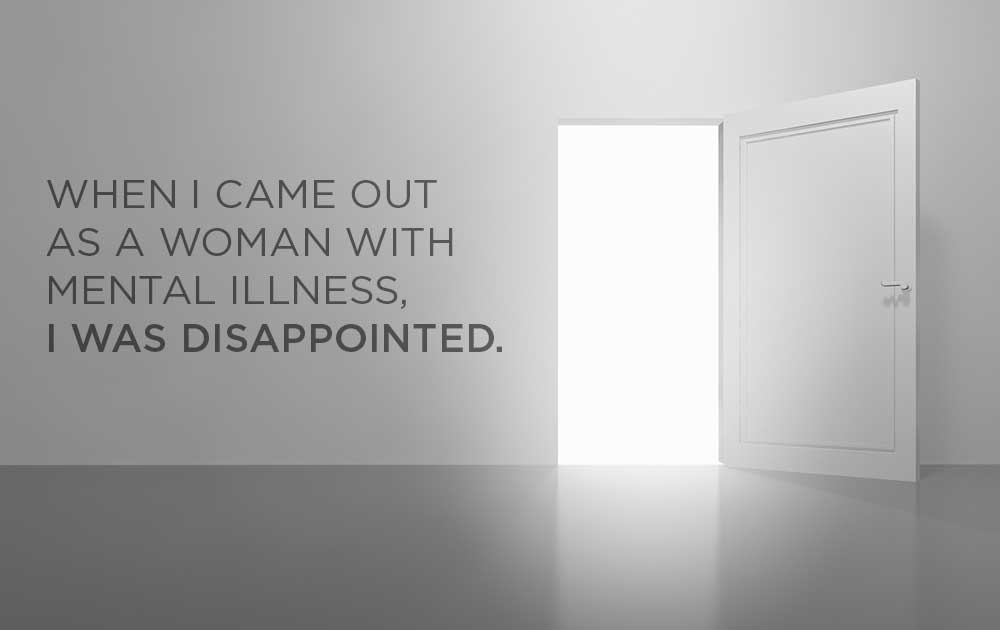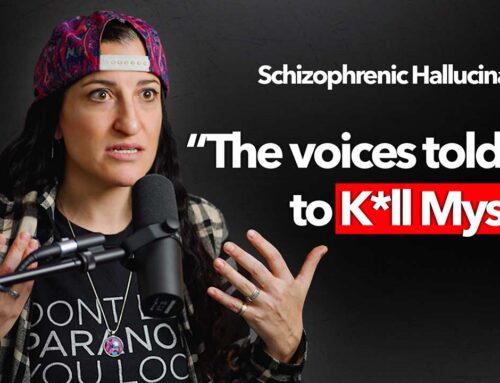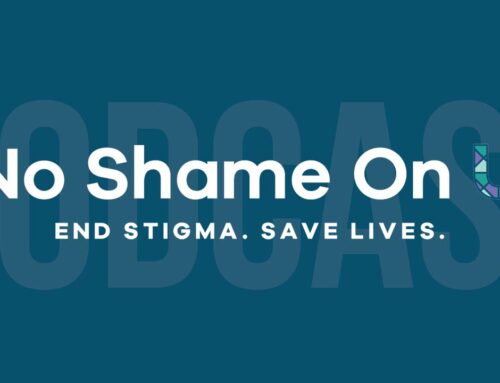I’ve come out of closets before. For instance, I came out as bisexual when I went away to college. I made a big deal out of it, announcing on Facebook, quoting Lady Gaga, without talking to my family first. I thought I would get backlash from some people, so I was hoping the power of the internet would protect me. Turned out, my parents could have cared less, and my dad would go on to make jokes about it (No, Taylor, the doctor said bipolar, not bisexual!). Every time I have revealed a piece of my identity to the world I have been fearful of what others would think. And every time I have come out about something, I have been shown nothing but love. I have a pretty open family, like minded friends, and a pretty great community who back me on most things.
However, when I came out as a woman with mental illness, I was disappointed.
I kept my diagnosis’s under wraps when I first learned of most of them, especially after my diagnosis of bipolar disorder that was given to me a few weeks before I left for college. My two best friends knew, and so did my parents. They didn’t make too much of a big deal out of it. My best friends asked how could they help, and what it meant to have what I have, and my parents encouraged me to continue with my health checkups up at college (I was leaving the state for school).
The next person I told about my illness was my (now ex) boyfriend. We had moved in together after one semester of college, where I let mania take control and ended up flunking out from missing classes. He wasn’t nearly as accepting as my parents or friends were. He constantly told me nothing was wrong (despite manic episodes, long periods of depression, and several suicide attempts). I would go to the doctor, and he would reassure me the man was a quack, so I stopped showing up. He told to just cut it out.
He made me ashamed of my diagnosis. He made the word “crazy” out to be derogatory word.
Of course, the conversations he held with me about me not being crazy were followed by insulting fights. He would say things about how I should be locked up, that he would throw me into an institution and make sure no one would come get me. He made me ashamed of my diagnosis. He made the word “crazy” out to be derogatory word. He told me no one would ever love me for who I was. There worst was when he would encourage suicide attempts and self-harm, telling me I would make the world a better place when I was gone.
When I finally freed myself from his grip I sought out self-care and professional treatment. I thought I would finally get helped, and was banking on a cure. I felt comfortable with my diagnosis, and felt okay with telling the world that I had mental illness. So once again, when seeking support after leaving my own personal hell, and accepting the health issues that inflicted my mind, I took to social media once more.
I was called “attention seeking.”
It was mixed reviews. A lot of people messaged me about their mental illness, and congratulated me for being brave. However, I also received messages confirming everything my ex said to me. It was one step forward, two steps back. People tried to use my courage and my “outing” myself against me. People wished negative things to happen to me. I was called “attention seeking.”
I had given up talking about it until I met a new guy. The first time he came to my house he was concerned by the number of pill bottles. I explained to him I had bipolar, along with a few other illnesses. He nodded, and continued our line of conversation. I was confused. Normally people had something to say, be it negative or not. We started dating shortly after, and his searches in his phone changed from YouTube videos to searches about bipolar. He started reading up on my illness, and without telling me he started making small changes to accommodate me, and to understand my treatment better. We were married when I first checked into a mental hospital, and instead of leaving or shying away he looked over my papers from my IOP (intensive outpatient program) classes and tried to keep the lessons I learned going at home. He researched my medications, and talked to my doctors. He supported me entirely, even though I was “crazy.”
But the truth is, people aren’t going to always be exactly accepting.
I still go to social media to talk about my mental illness. But instead of statuses coming out, I speak out about mental illness and changes we can make to the mental health system, while trying to provide comfort to others. I encourage my readers and friends to “come out” of the mental health closet when they’re ready. But the truth is, people aren’t going to always be exactly accepting. Although the facts and science is right there, people still don’t believe mental illness is a real thing. I’ve come to learn that it’s not about coming out; it’s about accepting yourself for who you are, and knowing that although your mental illness is a part of you, it doesn’t have to define you. You are you; not your diagnosis.
Schizophrenic.NYC Mental Health Clothing Line Blog Post
Schizophrenic.NYC Mental Health Clothing Line Blog Post






